Roses are always going to look beautiful, but for me, nothing compares to the thrill of catching a sweet smell of a truly fragrant rose while wandering through a garden.
While modern breeders have sometimes focused on flower size or disease resistance, fragrance is now enjoying a real comeback.
Gardeners, florists, and rose collectors are looking for scent as much as beauty these days, and it’s honestly easy to see why.
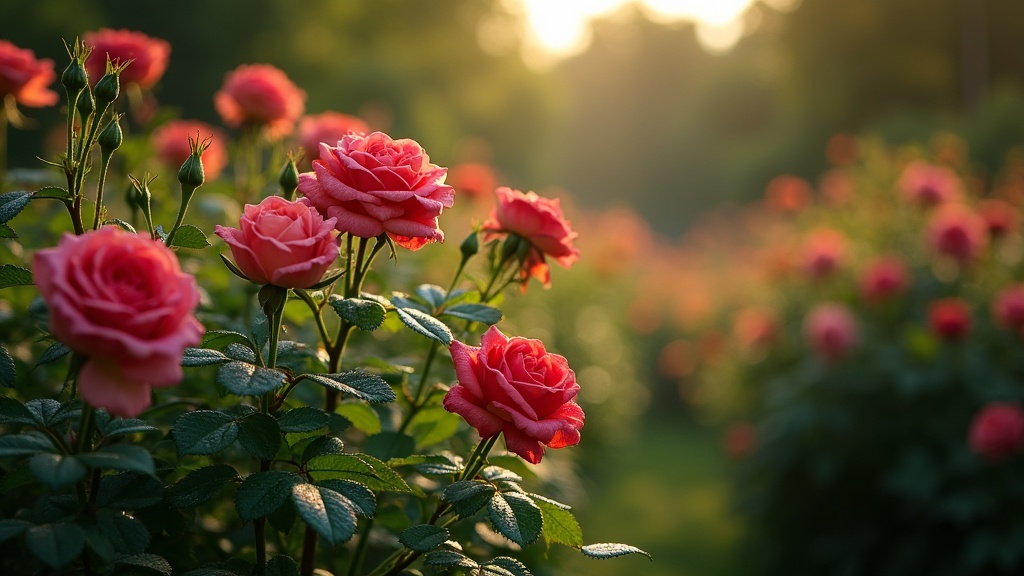
Why Rose Fragrance Matters
The classic aroma of roses has deep roots in gardening history.
Even centuries back, people were growing roses for their scent, using them in perfumes, love letters, and even medicine.
Certain old varieties survived and are now prized exactly because they never lost their smell, which honestly says a lot about how much fragrance matters in a rose’s appeal.
Fragrance plays a big role beyond nostalgia.
In floristry, a scented bouquet always gets extra attention. In the perfume world, rose oil and absolute are used in countless luxury fragrances.
People crave the emotional comfort that comes from familiar scents, so fragrant roses strike that perfect note.
For many, the smell of a favorite rose brings back strong memories of gardens, loved ones, or childhood adventures.
It shapes how we feel about the flowers we grow, and totally boosts mood and atmosphere in a space.
On top of everything, having fragrant roses in the garden can attract pollinators like bees, butterflies, and even hummingbirds, making your backyard feel alive and healthy.
The scent of roses, drifting on a summer breeze, has a way of pulling people outside and encouraging moments of reflection, relaxation, or connection with others.
Imagine a summer evening spent sharing stories with friends surrounded by scented blooms—the experience truly becomes an event in itself.
Having fragrance in your garden is about more than just personal enjoyment. It enriches the lives of all who visit, even if just for a quick stroll.
The Science of Rose Fragrance
There’s some pretty cool chemistry behind what our noses pick up.
Rose scent comes from a whole mix of natural compounds like geraniol (sweet and citrusy), citronellol (fresh and lemony), and phenyl ethanol (lightly floral).
Some roses pack in extra notes that can smell like peach, apple, spice, or even musk.
The combination of these compounds creates the full experience. That’s why one rose can smell like berry jam, and another has a whiff of cloves.
Sometimes, the scent fits into classic categories like “Damask” (think rich, heady, old rose) or tea (lighter and almost like fresh cut hay).
There are plenty of factors that decide how strong a rose smells. Time of day matters; many roses are strongest in the early morning.
Temperature, recent rain, and even humidity can crank up or turn down the aroma.
Roses grown outside usually smell more intense than greenhouse grown ones, though there are exceptions depending on variety and growing style.
Interestingly, scientific studies show rose petals have scent glands that produce aromas differently across varieties.
Genetic differences explain why some roses make heavy, rich oils, while others seem nearly scentless.
The environment, including air quality and nutrients in the soil, lets a rose either express its fragrance fully or somewhat hold back.
Rose breeders now often consider both the genetic and environmental side of fragrance, aiming to offer gardeners varieties that reliably smell amazing.
Categories of Rose Fragrance
Knowing which scent you like helps with picking roots or plants. Breeders and rose experts tend to group rose fragrances into a few main families:
- Classic Damask: Full bodied, deep, old fashioned rose scent. The archetype for a reason.
- Fruity Notes: Smells that remind me of apples, pears, raspberries, citrus, or even grape.
- Spicy or Clove: Peppery, cinnamon, or even anise notes, giving an exotic, cozy touch.
- Myrrh & Musk: Earthy, resinous, and sometimes powdery. These create a long lasting background.
- Tea Scented: Delicate, with hints of fresh cut green tea leaves. Not overpowering, but super pleasant up close.
Every garden has a place for each kind of scent, and it’s fun to mix them up for a layered sensory experience.
Beyond these categories, some modern breeders are experimenting with roses that smell like lychee, tropical fruit, or even chocolate, offering adventurous gardeners ever more exciting choices.
Breaking down rose scent families can help narrow your preferences, especially if certain aromas trigger favorite memories or simply make you smile.
Top Extremely Fragrant Rose Varieties
I get asked all the time which roses smell the strongest.
Here are some of my favorites in each group, along with a few worth hunting down if you want something really special.
I’ve dug into countless catalogs, grown dozens of varieties, and chatted with other enthusiasts to pull together this list.
These are tried-and-true garden picks for incredible fragrance:
- Hybrid Tea Roses: Mr. Lincoln (deep red, seriously strong classic perfume), Double Delight (cream and red, amazing spice and fruit notes), and Papa Meilland (velvety and rich with stunning fragrance).
- Old Garden Roses: Madame Hardy (pure white, classic Damask fragrance), Kazlik (rare but intense), and Rosa gallica officinalis (the historic “Apothecary’s Rose”).
- English Roses (from David Austin): Gertrude Jekyll (the definition of a pink, scent packed Damask), Lady Emma Hamilton (orangey blooms, a juicy fruit scent), Jude the Obscure (apricot color and a whiff of pear drops).
- Floribundas & Shrubs: Scentimental (striped blooms, sweet and spicy with every flower), Perfume Delight (bright pink and strong scent), and Fragrant Cloud (coral red, a bit of spice and citrus).
- Rare and Collectors Varieties: If you see Maggie (deep pink, old rose fragrance), or Paul Ricault (luscious myrrh and spice), they’re worth tracking down.
Each variety on this list is known for strong fragrance, and many also boast long blooming seasons, vibrant colors, and good disease resistance.
Links to detailed care guides and more photos for each of these will be coming soon, if you want to go deeper on any variety.
If you have a favorite from this list, consider sharing your personal experience or a tip in the comments section below.
The more people contribute, the more other gardeners can benefit!
Cultivating Roses for Stronger Fragrance
Bigger blooms are nice, but if you want really fragrant roses, there are some gardening steps that definitely help maximize scent.
Soil is a big one.
Rich, well drained soils loaded with organic matter help roses thrive and pump out stronger smelling flowers.
I like to work in compost or well rotted manure every year, and using organic rose food throughout the season really makes a difference.
Consistent sunlight is important. Most fragrance heavy roses want at least six hours of direct light each day.
Temperature also plays a role.
Roses tend to smell best in moderate, not brutally hot, weather. If you’re growing in a cool spring or mild summer, your garden is basically made for fragrant roses.
When watering, keep the soil moist but not soggy.
Letting roots dry out means weaker growth (and less scent), but overwatering leads to bland, less fragrant blooms.
Regular pruning is the way to keep bushes open to air and sunshine, which boosts both health and flower quality.
For serious enthusiasts, greenhouse growing can bump up fragrance by keeping temperatures and humidity just right.
Some folks keep potted roses indoors just to enjoy their scent where it can be easily appreciated.
If you’re looking for next-level cool results, consider researching companion planting for roses.
Lavender, catmint, and alliums not only look great but can deter pests naturally, reducing the need for chemicals and helping your roses pump out better blooms.
Mulching with shredded bark or cocoa hulls helps soil stay moist and releases a subtle earthy scent, which highlights the fragrant roses even more.
Uses for Fragrant Roses
It’s not just about admiring roses outside.
Strongly scented varieties are really handy in cut flower arrangements, whether for weddings or home bouquets.
Fragrance adds emotion and makes bouquets feel truly romantic or lush.
Plenty of people plant fragrant roses close to patios, doorways, or windows so the smell drifts indoors in summer.
You can use scented petals in potpourri, homemade rose water, or even try your hand at DIY perfume.
A bowl of freshly gathered fragrant rose petals can change the vibe of a whole room.
If you’re feeling crafty, make rose vinegar for culinary uses, rose petal jelly, or try pressing petals into handmade paper for scented stationery—a fun way to keep the beauty of your roses alive even through the winter months.
Garden designers often recommend mixing highly scented roses into borders or near paths, so visitors are surprised by natural perfume as they walk by.
Sensory gardens also often feature fragrant roses as a highlight for visitors of all ages.
In urban environments, using strongly scented roses along balconies or rooftop terraces can transform even the most compact spaces into relaxing, flower filled escapes.
Scented roses can be used as part of meditation or mindfulness gardens, bringing another layer of enjoyment to your time outdoors.
Recommended Products
- Extremely Fragrant Rose Plants and Seeds: Nurseries like Heirloom Roses or David Austin Roses offer strong scented varieties ready for garden or container growing. Check for varieties labeled as “high fragrance” or “old rose scent.”
- Organic Rose Fertilizer: I like Espoma Rose tone or Dr. Earth for richer, healthier blooms and better scent.
- Greenhouse Kits: Mini greenhouses or cold frames can help extend your rose season, especially for enhanced fragrance in cooler climates.
- Books on Rose Fragrance and Breeding: “The Rose: The History of the World’s Favourite Flower in 40 Elegant Lenses” or “David Austin’s English Roses” offer tons of info for fragrance lovers.
Some of these links are affiliate links, which help support the site at no extra cost to you.
If you end up making a purchase, thanks for supporting continued gardening guides and rose tips here!
FAQs About Fragrant Roses
Why don’t all roses have fragrance?
Some modern hybrid roses were bred mainly for looks and disease resistance, not fragrance. The scent trait can be lost if breeders don’t select for it, but good news: a lot of breeders are bringing fragrance back these days.
Which rose is considered the most fragrant?
It depends who you ask, but Mister Lincoln, Gertrude Jekyll, and Double Delight are frequently top rated for their super strong and memorable scent. Always sniff before you buy, since people’s noses can pick up different notes!
Do greenhouse roses smell stronger than outdoor roses?
Usually, roses develop the strongest scent with lots of sun and airflow, both of which you get easily outside. But with careful humidity and temperature settings, some greenhouse roses do really well, too.
Can soil and fertilizer affect rose fragrance?
Absolutely. Well fed roses in healthy, living soil tend to bloom with more scent. Avoiding harsh chemical fertilizers keeps the microorganisms in your soil happy and promotes a robust scent profile.
Is there a way to keep cut roses smelling strong after bringing them inside?
To keep the scent going after cutting, harvest blooms in the morning while their aroma is strongest, and place them quickly into fresh, cool water.
Trim stems at a slant and change the water daily to extend both vase life and fragrance. Some garden enthusiasts add a splash of lemon juice to the water to keep things fresh longer.
Wrapping Up & Next Steps
A truly fragrant rose offers something you can experience up close, creating long lasting memories every summer.
Scents stay with us, and that’s why going for a strong scented variety adds more to your garden than just color.
If you want to fall in love with roses all over again, keep an eye out for our next guide: Top 10 Most Fragrant Hybrid Tea Roses for Home Gardens.
Until then, consider visiting a local rose garden, asking fellow gardeners about their favorites, or starting your own small collection.
The world of fragrant roses is bigger and more eye catching than you might imagine—there’s always a new scent to stumble upon just around the corner.
Happy gardening!!!!!!!!!!

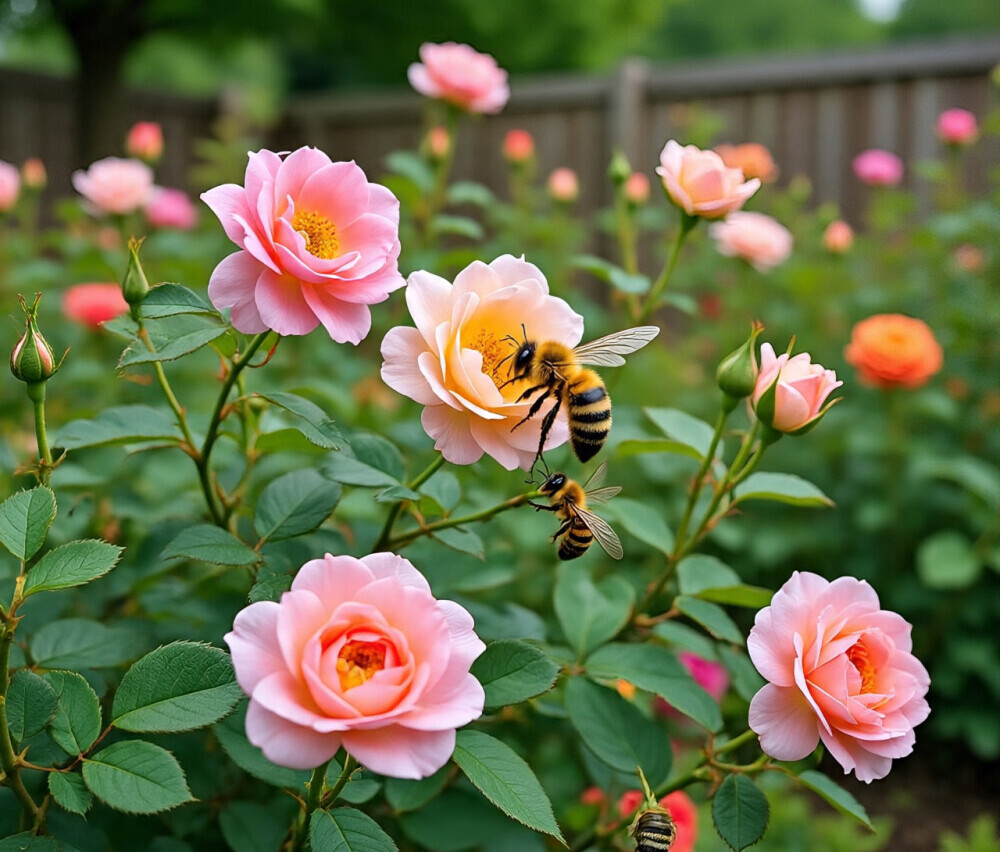
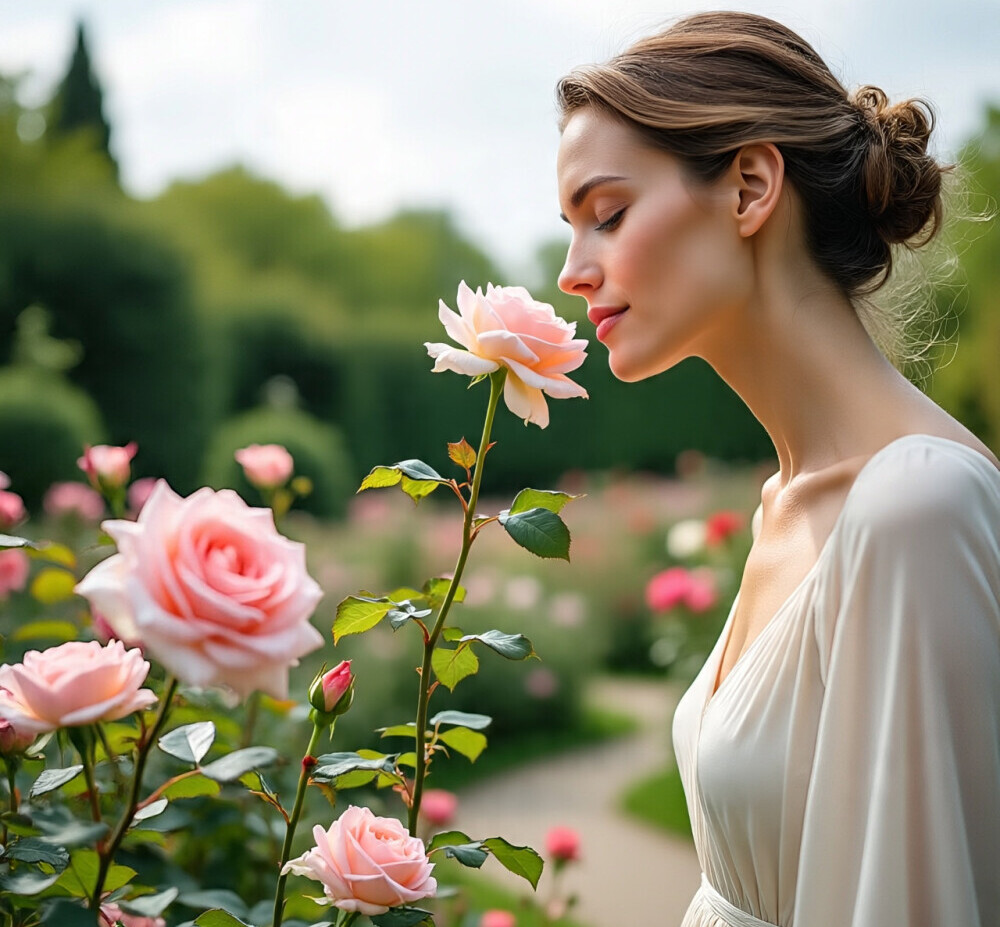
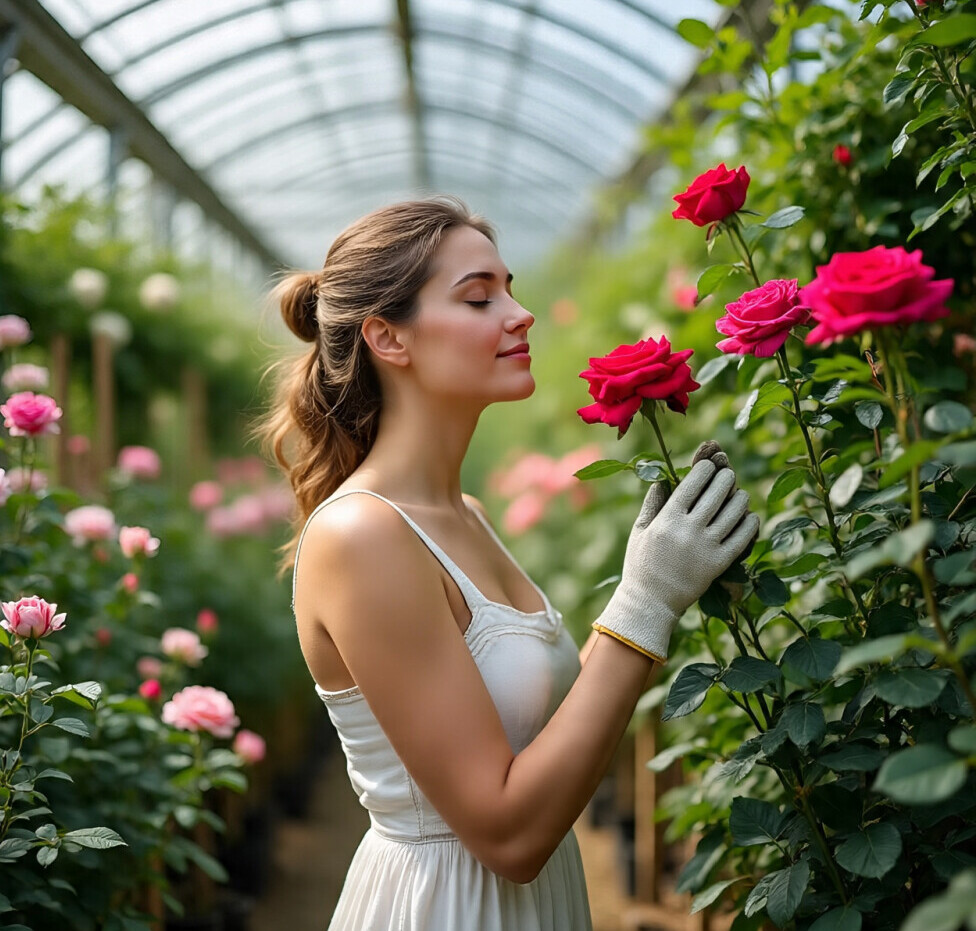
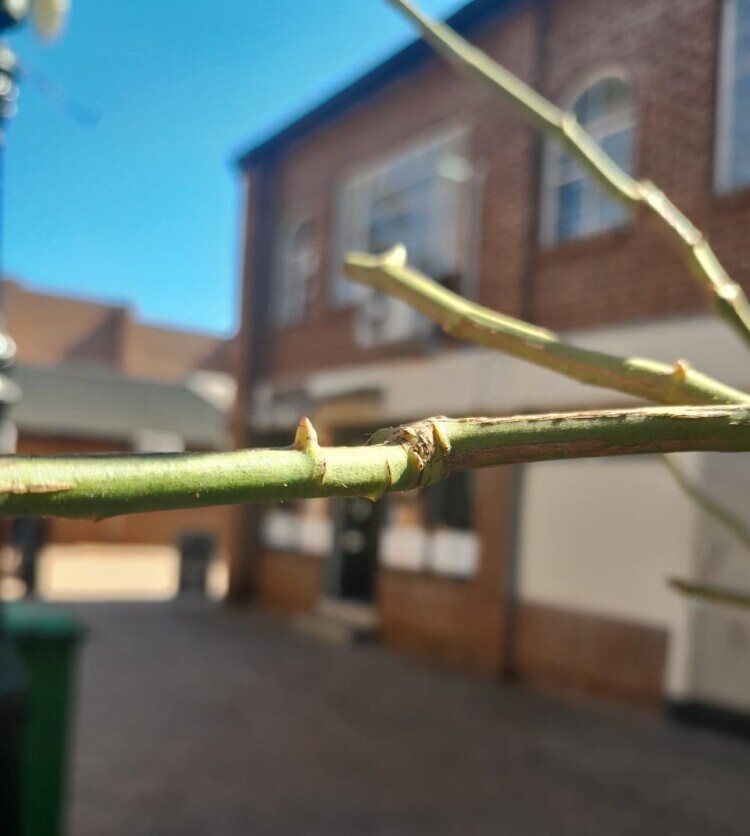
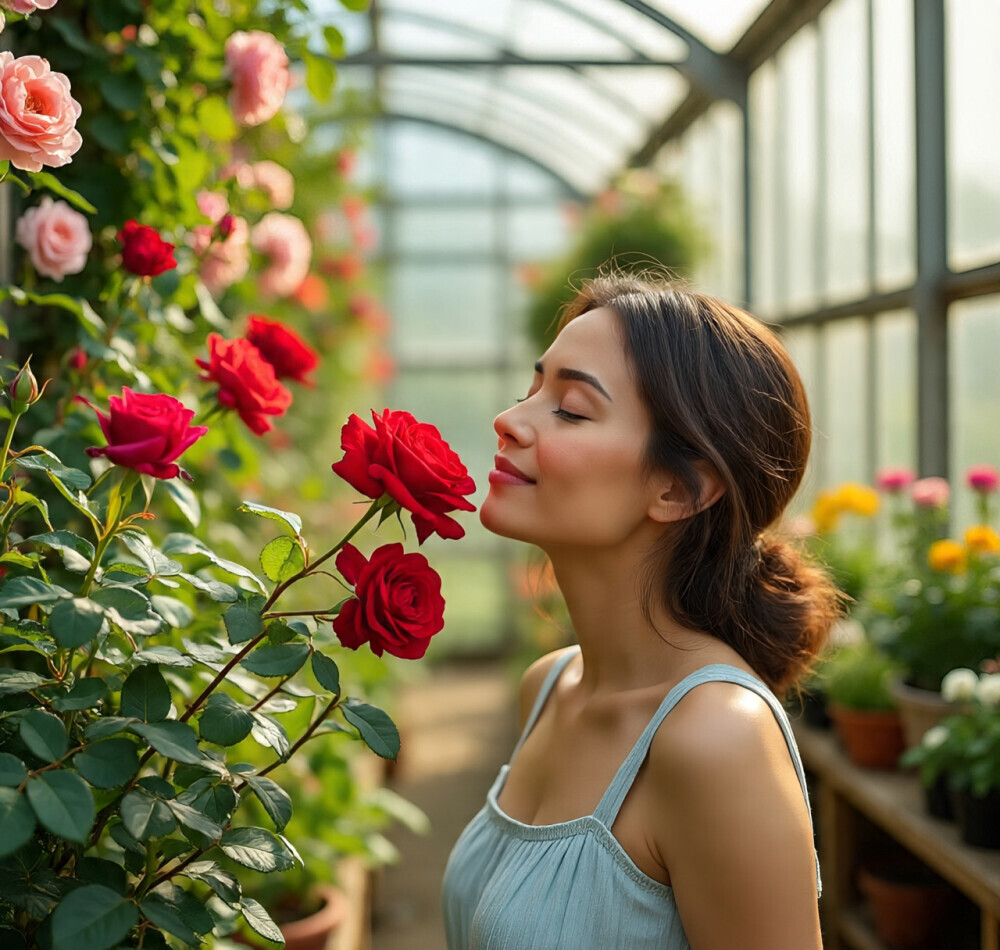
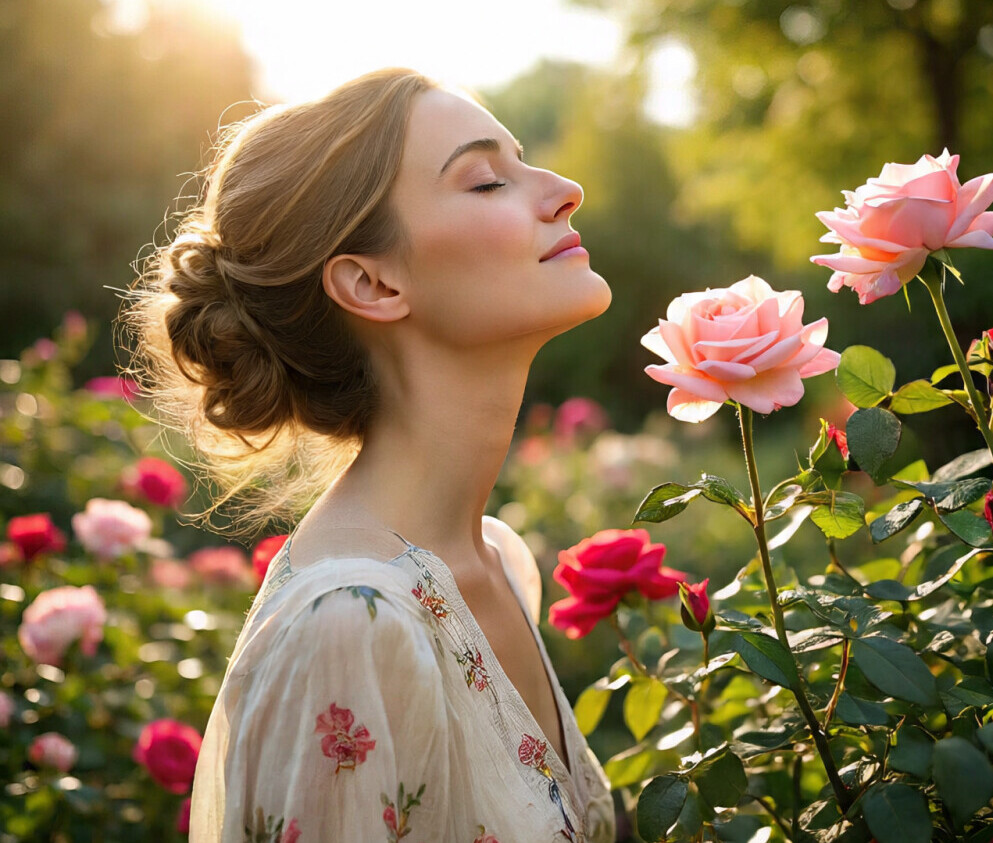
What a wonderfully comprehensive and sensory guide! As a gardener who believes scent is just as important as looks, this list is an absolute treasure. I’ve been hoping to find a rose that can fill my garden with a true, old-fashioned fragrance, and your detailed descriptions of notes like myrrh and fruit are incredibly helpful.
‘Munstead Wood’ and ‘Gertrude Jekyll’ have definitely caught my eye. This post has not only given me a perfect shopping list but has also deepened my appreciation for the complex world of rose scents. Thank you for putting together such an inspiring resource!
Thank you so much, Cian, for your kind words about the guide.
I’m thrilled to hear that it’s helped you discover new fragrant rose varieties that fit your vision for your garden.
‘Munstead Wood’ and ‘Gertrude Jekyll’ are excellent choices – both are known for their strong, old-fashioned fragrance.
If you’re looking for more varieties with a classic scent, you might also want to consider ‘English Rose’ or ‘Constance Spry’.
Remember to plant them in a spot that gets good air circulation and sunlight, which will help bring out the best in their fragrance.
Thank you again for your comment, and happy gardening!!!!
You really captured why fragrance is so essential to what makes a rose special. I have so much respect for all the breeders out there focusing on disease resistance, but honestly, if a rose doesn’t have that intoxicating scent, it just feels like a pretty flower without any magic.
My all-time favorite rose is ‘Munstead Wood.’ That deep velvet red with its rich, old-rose perfume takes me right back to my grandmother’s garden. Each time I take a deep breath of its scent, I’m instantly twelve years old again, running through her flower beds and enjoying the beauty around me!
I’m curious, what’s the most surprisingly scented rose you’ve ever grown? I’m eager to expand my collection and would love to find those unique scents.
Thank you, Alyssa, for sharing your heartfelt comment.
I completely agree that fragrance is what makes a rose truly special.
‘Munstead Wood’ is a classic choice, and its scent is indeed intoxicating.
As for surprisingly scented roses, I have to mention ‘Teasing Georgia’ – it has a unique apricot-mix fragrance that’s both sweet and complex.
Another one is ‘Rhapsody in Blue’, which, despite its name, has a lovely dark, fruity scent.
I’d love to hear more about your experiences with different scented roses and what you discover in your garden